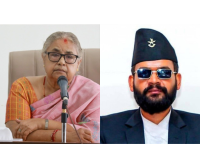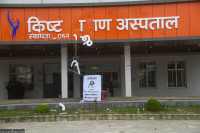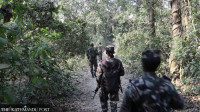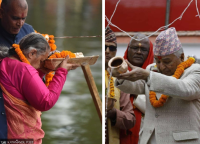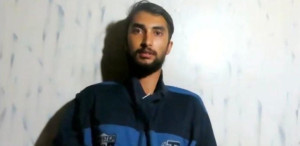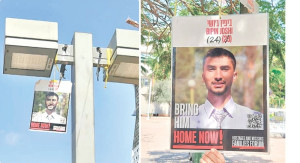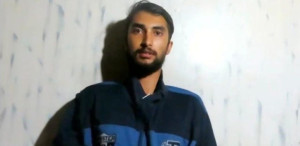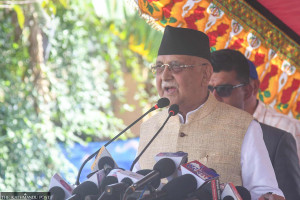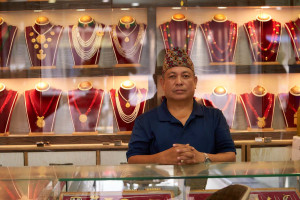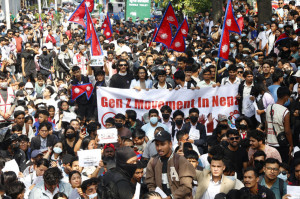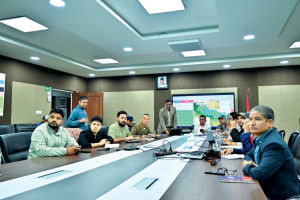National
Covid-19 fund idle as pandemic paralyses nation
Coronavirus Prevention and Control Fund officials say there was no demand for resources, but others blame political crisis for the disuse.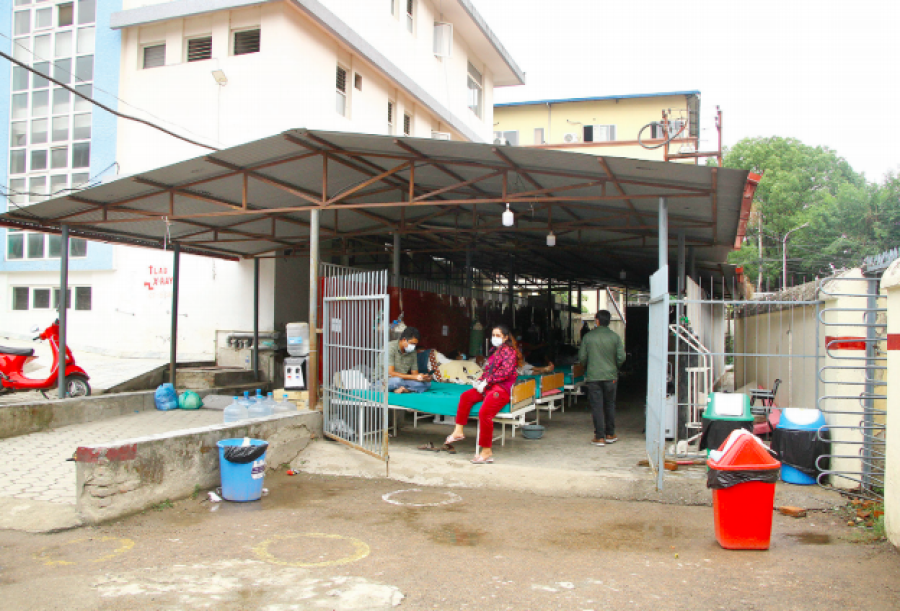
Prithvi Man Shrestha
The Coronavirus Prevention, Control and Treatment Fund established last year to generate resources to fight the Covid-19 pandemic through voluntary contributions has remained largely unused even as the country is reeling under a second wave of Covid-19 infections.
The fund was established in March 2020 to mobilise resources for procuring medicines and medical goods, setting up infrastructure for the management of Covid-19 infected people, mobilising human resources and providing relief for the pandemic-affected people, according to the directives on Coronavirus Prevention, Control and Treatment Fund-2020.
Since the meeting of its board on January 27, another meeting had not been held for four months until last week. And not a single rupee was released from the fund for the management of oxygen, other medical supplies, hospital beds and for other measures to combat the second wave of the pandemic.
Officials, however, defended the disuse of the fund saying that there was no request for resources.
“We received no request for funds from any agency under the three tiers of government during the last four months,” said Pushpa Raj Kadel, vice-chairperson of the National Planning Commission, who chairs the fund. “Therefore, the board hadn’t met since January until the one held last week.”
Meanwhile, the country’s paralysed health system was pushed to the limit due to the surge in coronavirus cases and shortage of oxygen throughout May when the second wave of the pandemic, that hit the country from April, peaked.
As of Saturday as many as 7,799 people have lost their lives and 585,100 have been infected, according to the Ministry of Health and Population. Till March-end, as many as 3,030 had died while 277,309 people had been infected.
On Saturday, the country reported 3540 new cases and 68 deaths.
“Last week’s meeting of the Fund’s board decided to distribute funds between Rs500,000 and Rs1 million to each district for the management of the bodies of Covid-19 victims,” said Kandel.
Other factors behind the delay in holding the meeting of the Fund’s board, according to Kadel, are fewer Covid-19 cases until March and the limited resources at the Fund’s disposal.
On March 6, the country had reported as low as 47 new Covid-19 cases.
“With the Finance Ministry itself providing necessary funds to various agencies to fight the pandemic, maybe the Fund’s resources were not needed,” said Kadel.
But officials at the Prime Minister’s Office said that the heightened political wrangling in the month of May was one of the main reasons why the board could not hold its meetings.
In the middle of the pandemic, Prime Minister KP Sharma Oli sought a vote of confidence in the House of Representatives. In the May 10 vote, he failed to secure a vote of confidence.
As the opposition parties, particularly the Nepali Congress and the Communist Party of Nepal (Maoist Centre), could not muster the numbers to prove a majority, Oli was reappointed prime minister on May 13 as the leader of the largest party in the House.
Right after Oli lost the vote of confidence on May 10, office bearers of the National Planning Commission also lost their positions in line with the commission’s Formation and Operating Order-2018.
After being sworn in as prime minister, Oli reappointed Kadel and the three members to the commission on May 20.
“Besides political uncertainty, the absence of chairperson of the fund [commission’s vice-chairperson] also contributed to the delay in holding a meeting of the fund’s board,” said Khag Raj Baral, secretary at the Prime Minister’s Office.
Oli faces criticism for prioritising his political interests rather than managing the pandemic.
Besides failing to hold the meeting of the fund’s board, the leadership of the fund also made no efforts to increase the size of the fund over the last several months.
According to the directives on Coronavirus Prevention, Control and Treatment Fund-2020, key resources of the fund include receipts from the federal government, provincial governments and local governments; foreign governments, institutions/ organisations or individuals; governmental and non-governmental organisations; and domestic organisations or individuals.
When the fund was created last year, ministers, lawmakers, private companies, police personnel, non-governmental organisations and individuals had contributed to it.
However, little effort was made to collect extra funds in the wake of the second wave of the pandemic. From early this year, the government seems to have made no effort to collect more funds.
A total of Rs2.89 billion has been collected in the Fund since its creation, according to the Prime Minister’s Office. After distributing much of the collected amount, as of mid-April, the Fund has Rs406.67 million, a slight rise from the Rs383.41 million in mid-March, according to the Financial Comptroller General Office.
According to the Prime Minister’s Office, the resources under the fund were spent on developing health infrastructure such as freezers required to manage dead bodies, setting up oxygen plants and oxygen management systems, hospital beds, intensive care units (ICUs) and laboratories, and procuring ventilators, polymerase chain reaction (PCR) machines among others.
Although a committee headed by the National Planning Commission has been making decisions regarding the distribution of the resources in the Fund, from now on the decision will be made by the recently reorganized Covid-19 Crisis Management Centre.
Balananda Sharma, who was recently appointed coordinator of the Centre, told the Post that the Center would mobilise the resources of the Fund.
Baburam Marasini, a former director at the Epidemiology and Disease Control Division at the Health ministry, said that mobilisation of the fund from a single window will save costs.
“As the Crisis Management Centre has been authorised to fast-track the mobilisation of the Fund’s resources, there should be a scrutiny though to ensure transparency of its operation,” he said.




 17.12°C Kathmandu
17.12°C Kathmandu
